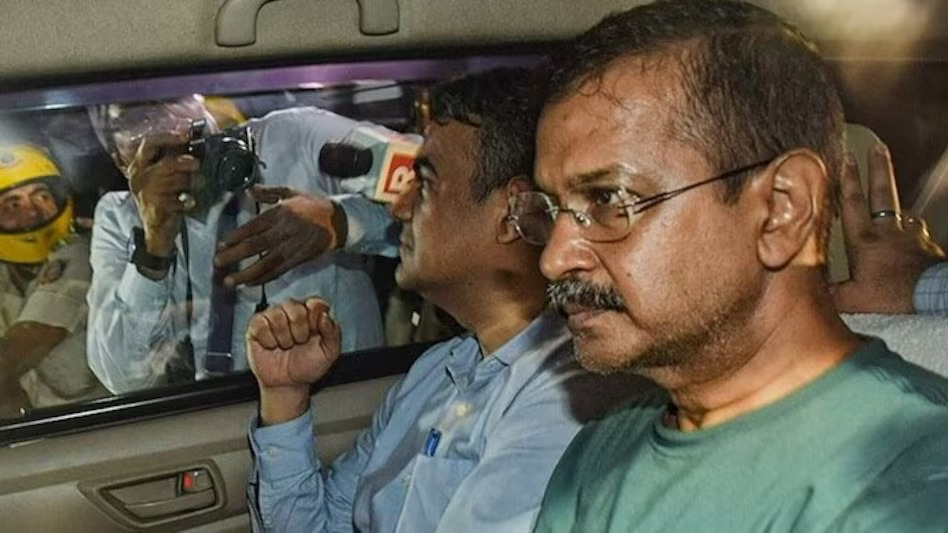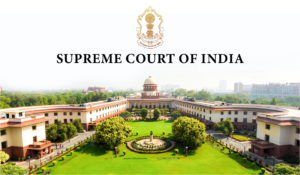
Table of Contents
ToggleKejriwals Bail Plea in Excise Case
Supreme Court to Hear Kejriwal’s Bail Plea
The Supreme Court is set to hear a bail plea filed by Delhi Chief Minister Arvind Kejriwal on Wednesday, seeking his release from jail in connection with the Delhi excise policy case. Kejriwal, who is currently under investigation by the Central Bureau of Investigation (CBI), has been in custody since March 21.
Legal Proceedings Leading to the Hearing
A bench of justices Surya Kant and Ujjal Bhuyan will preside over Kejriwal’s two petitions. These petitions challenge the August 5 decision of the Delhi High Court, which upheld Kejriwal’s arrest and denied him bail. The Delhi High Court had ruled that the arrest was lawful, stating that the CBI had presented sufficient evidence to justify Kejriwal’s detention.
Kejriwal’s petitions, filed two days after the Supreme Court granted bail to former Delhi Deputy Chief Minister Manish Sisodia in a related investigation, emphasize similar grounds for his release. Kejriwal argues that the legal reasoning applied in Sisodia’s case should be equally applicable to him, given the parallels in their circumstances.

Kejriwal’s Argument Based on Sisodia’s Bail
Kejriwal’s plea draws heavily on the Supreme Court’s observations in the Sisodia case. In Sisodia’s instance, the court noted that prolonged incarceration without trial could violate fundamental rights, particularly when the investigation is largely complete, and the accused has strong ties to the community, reducing the likelihood of absconding.
Kejriwal’s legal team contends that he meets these criteria as well, noting that he has deep roots in society and that much of the investigation has already been completed. The plea suggests that continued detention would impinge on his fundamental right to liberty and a speedy trial under Article 21 of the Indian Constitution.
Impact on AAP and Upcoming Elections
The petition’s timing is significant, as it comes ahead of the Assembly elections in Delhi scheduled for early next year. As the sitting Chief Minister and the Aam Aadmi Party’s (AAP) most prominent leader, Kejriwal’s presence is crucial to the party’s campaign strategy. Under his leadership, the AAP has focused on key issues such as education, healthcare, and affordable utilities, positioning itself as a champion of governance in Delhi.
Kejriwal’s absence from active campaigning due to his incarceration could potentially impact the AAP’s electoral performance. The Supreme Court’s decision on his bail plea will likely have far-reaching implications, not just for Kejriwal’s political career, but also for the AAP’s future in Delhi.
Kejriwal’s Arrest and Detention
Kejriwal was initially arrested by the Enforcement Directorate (ED) on March 21 in connection with the excise policy case. Although the Supreme Court granted him interim bail in May for campaigning during the Lok Sabha elections, he remained in custody due to subsequent arrest by the CBI on June 26, related to the same matter.
On July 12, the Supreme Court granted Kejriwal interim bail in the ED case, acknowledging that he had already spent over 90 days in incarceration. However, his continued detention by the CBI has prevented his release.
Background of the Excise Policy Case
The case against Kejriwal stems from allegations of irregularities in Delhi’s 2021-22 excise policy, which has since been scrapped. The CBI began its investigation following a recommendation by Delhi’s Lieutenant Governor in July 2022. Kejriwal is the third AAP leader to be arrested in connection with this case, following the arrests of Manish Sisodia in February 2023 and Rajya Sabha MP Sanjay Singh, who was granted bail after six months in custody.
Conclusion
The Supreme Court’s upcoming hearing on Kejriwal’s bail plea is a crucial moment in the ongoing legal battle surrounding the Delhi excise policy case. The court’s decision will not only affect Kejriwal’s immediate future but also has the potential to shape the political landscape in Delhi ahead of the Assembly elections. As the legal proceedings continue, the focus remains on the balance between upholding justice and ensuring the fundamental rights of the accused
Disclaimer:
This article is based on information available as of the date of publication. Legal proceedings and outcomes are subject to change. Please refer to official court records for the latest updates.


